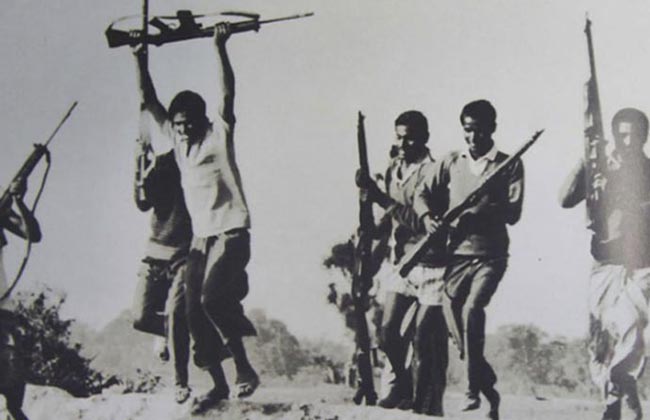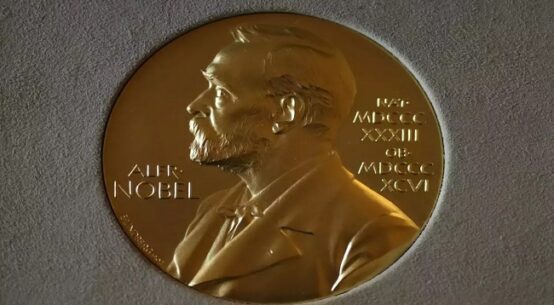
I take the liberty of writing a personal piece based on my personal experience linked to doing research on the history of 1971. Apart from the fact that we lived through 1971, I have been involved in this work since 1977. Almost 44 years later, I have seen phases and trends, emerge and disappear and observed how history has become a political weapon rather than an area of information providing and seeking. Today, we don’t seem to want to know or let others know what happened but we wish to use it for political gain.
Since we have based socio-economic power based on conflict than assimilation, people see 1971 history as a space of conflict too. This is one area where we can fight to the end without any conclusion and so the impetus to participate in this conflict doesn’t matter. It’s a very Bengali-Bangladeshi thing. We prefer emotive discussions over fact based argumentation. We see facts as anxiety generating because it can challenge our long held notions that are rooted in socio-religious dogma. It’s one of the reasons why very docile looking people can often turn very violent when it comes to land disputes and faith issues. The reasons are easy to see. Both are part of the overall livelihood crisis. So anything that threatens either turns us violent.
Religious driven violence is of course mostly caused by property grabbing opportunity. So it’s easy to whip up sentiments and create an environment which can lead to violence. That creates an unstable situation hence opportunity rand some people are forced to leave or have a weaker hold on property. Soon, the time to grab some property arrives.
Such issues are less in the cities and towns where property grabbers are far more powerful and don’t need excuses to grab property. They do so with the sheer power of their clout. When such biggies make a move, they will ensure a docile administration as well. Hence the urban scene is more soundless but much more big in scale in this grabbing economy. Basically it’s about the culture of grabbing. Historical narratives are grabbed and wrested away and the rest follows.
The first stage
In the first stage immediately after independence, there was less conflict as everything was known to all. But conflicts generated in 1971 were not over on December 16th and it continued on till the late 1970s. In the first few years there are many deaths due to such causes. It meant there were many unresolved issues. Those conflicts and violence created more violence and impacted on public perception.
The other was the rise of the new upper class and few beginnings of this class are kosher. Property grabbing, common in 1971, took on a new phase. If Hindus were the main victims during 1971, Pakistanis settled in Bangladesh were the major targets. Whether they were migrants from India or from West Pakistan with business or residence here, they were abandoned and grabbed. And “abandoned economy” grew after 1971 creating new vested class.
To this was added black marketing of goods, hoarding of goods, shortage economy manipulation, common in any post war economy. It created an instant wealthy class and many took to social and political life. It was in reality, a big insurance against any problem. Thus history began to serve a very different role in Bangladesh than expected. It was not so much about providing an impetus for state building but much more about building protection blocks. Before history was even written, it was edited to suit needs.
1975
Much of the crisis was accelerated with the 1975 change. Sk. Mujib symbolized 1971 so after the killing or Mujib , it was necessary to redefine historical narratives. On the other hand, 1971 remained the cornerstone of the state and so a new parameter had to be invented. When we worked in the History Writing project – 1978-1986- we faced no official interference. It was under the Zia regime. This regime was followed by the Ershad regime who later shut it down by which time I had left the project. Till then the conflict was largely limited to within the military.
What began to be intense was of course the rise of BNP and its conflict with the AL. It was after Zia’s killing that the kind of metaphysical imaging of Zia began. From a sector commander and one who read out an announcement on radio on behalf of Sk. Mujjib, he had become the “declarer of Independence”, a very different status. Zia himself never claimed that and throughout 1971 no one did. But its only in the 80s and 90s that this became a big issue. It was contested by the AL vehemently.
By the time AL found power in 1996, the AL-BNP fight dominated everything and no narrative was possible an none interested without this. History no longer was about facts but only the claim to who said what. It was no longer history, it was about claims to politics and its counter.
In the current stage what then can history be ?
What history will be is another matter but this question is largely about what the role of politics will be in history. No one can say and from a historical reconstruction of 1971 is concerned, it doesn’t matter. But history itself will increasingly belong to the more academic space crated by society rather than the current political space in which it resides constructed by conflict within the ruling class.
Given that the middle class who is again dependent on the ruling class is not interested in history but politics, most works will reside there but with rapidly declining credibility. As identity with the ruling class as a whole declines, so will the credibility and maybe even market.
A much smaller, not interested in current political conflict based analysis, symbolized by the Talk show culture will be there but a new trend will continue to emerge from the younger generation. They have currently tuned their back on the current political narratives and they will write their own history located outside the conflicting spaces now in sway.

